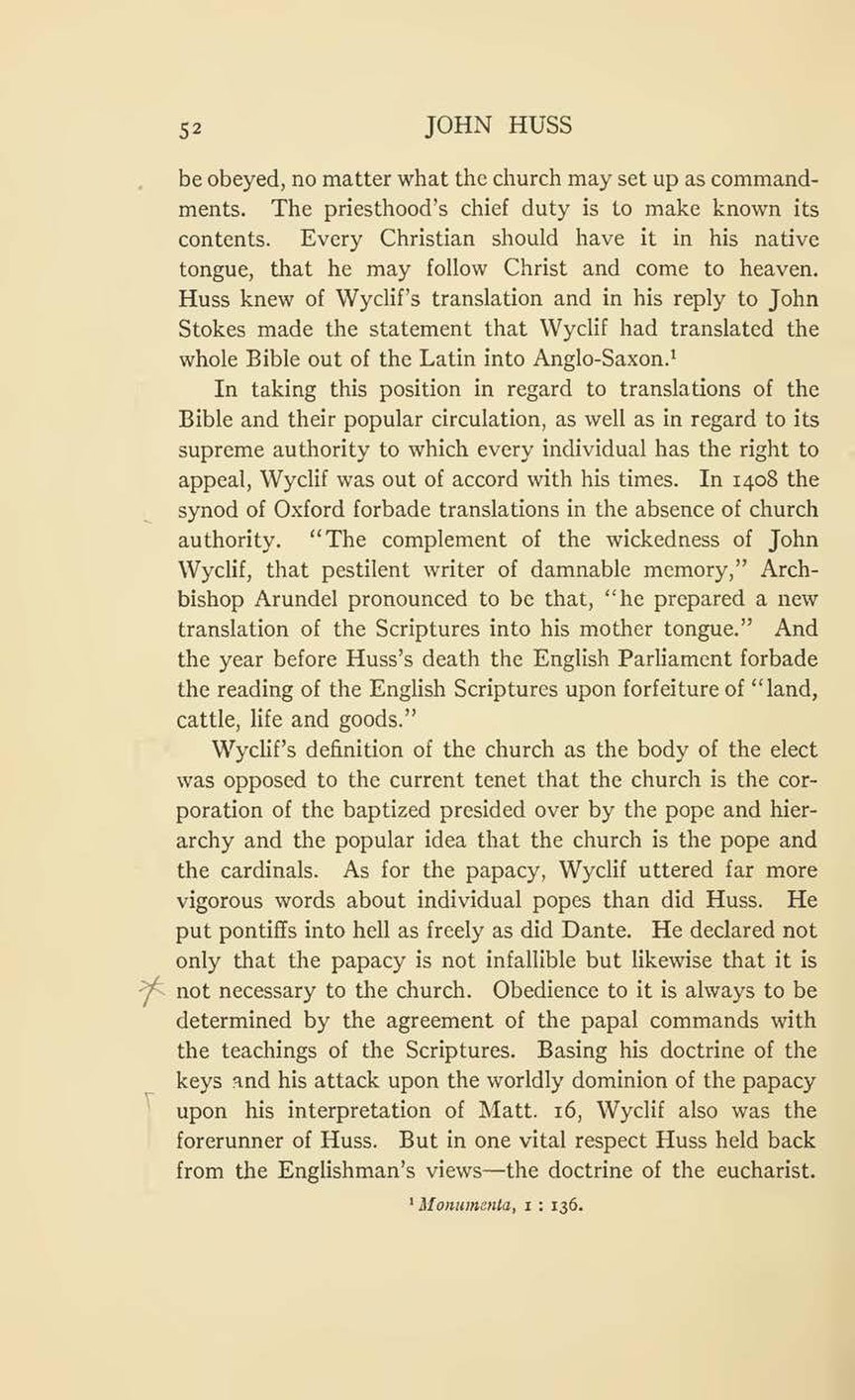be obeyed, no matter what the church may set up as commandments. The priesthood’s chief duty is to make known its contents. Every Christian should have it in his native tongue, that he may follow Christ and come to heaven. Huss knew of Wyclif’s translation and in his reply to John Stokes made the statement that Wyclif had translated the whole Bible out of the Latin into Anglo-Saxon.[1]
In taking this position in regard to translations of the Bible and their popular circulation, as well as in regard to its supreme authority to which every individual has the right to appeal, Wyclif was out of accord with his times. In 1408 the synod of Oxford forbade translations in the absence of church authority. “The complement of the wickedness of John Wyclif, that pestilent writer of damnable memory,” Archbishop Arundel pronounced to be that, “he prepared a new translation of the Scriptures into his mother tongue.” And the year before Huss’s death the English Parliament forbade the reading of the English Scriptures upon forfeiture of “land, cattle, life and goods.”
Wyclif’s definition of the church as the body of the elect was opposed to the current tenet that the church is the corporation of the baptized presided over by the pope and hierarchy and the popular idea that the church is the pope and the cardinals. As for the papacy, Wyclif uttered far more vigorous words about individual popes than did Huss. He put pontiffs into hell as freely as did Dante. He declared not only that the papacy is not infallible but likewise that it is not necessary to the church. Obedience to it is always to be determined by the agreement of the papal commands with the teachings of the Scriptures. Basing his doctrine of the keys and his attack upon the worldly dominion of the papacy upon his interpretation of Matt. 16, Wyclif also was the forerunner of Huss. But in one vital respect Huss held back from the Englishman’s views—the doctrine of the eucharist.
- ↑ Monumenta, 1: 136.
